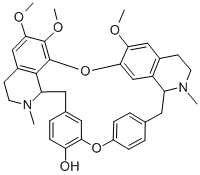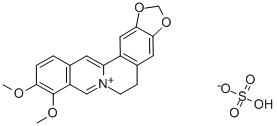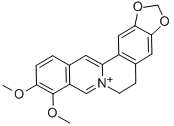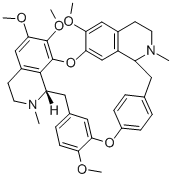PRODUCT Properties
| Melting point: | 198.5°C |
| Boiling point: | 655.15°C (rough estimate) |
| alpha | D20 +114.6° (c = 1.0 in chloroform) |
| Density | 1.1648 (rough estimate) |
| refractive index | 1.5300 (estimate) |
| storage temp. | Store at -20°C, protect from light |
| solubility | DMSO : 125 mg/mL (205.35 mM; Need ultrasonic) |
| form | Powder |
| pka | pKa (20°): 7.33 in aq methanol |
| color | White to yellow |
| CAS DataBase Reference | 478-61-5(CAS DataBase Reference) |
Description and Uses
Berbamine is an alkaloid, separated from Berberidaceae, Menispermaceae, or Ranunculaceae plants. Most of Berberidaceae plants have medicinal value, including their root, root bark, and stem. The plants of Berberis L. and Mahonia Nutt. contain many alkaloids, the most important of which are berberine and a small amount of palmatine, jatrorrhizine, berbamine, oxyacanthine, and so on. These compounds have many biological activities and have been used to replace goldthread and golden cypress. Also they are well succedaneums of berberine in Chinese and Western medicine. Traditional Chinese medicine Oregon grape root has different therapeutic effects for dysentery, enteritis, children pneumonia, and chronic bronchitis. The major treatment diseases of Chinese mahonia are bacillary dysentery, acute gastritis, infectious hepatitis, pneumonia, tuberculosis, bronchitis, sore throat, and so on.
antihypertensive, skeletal muscle relaxant

